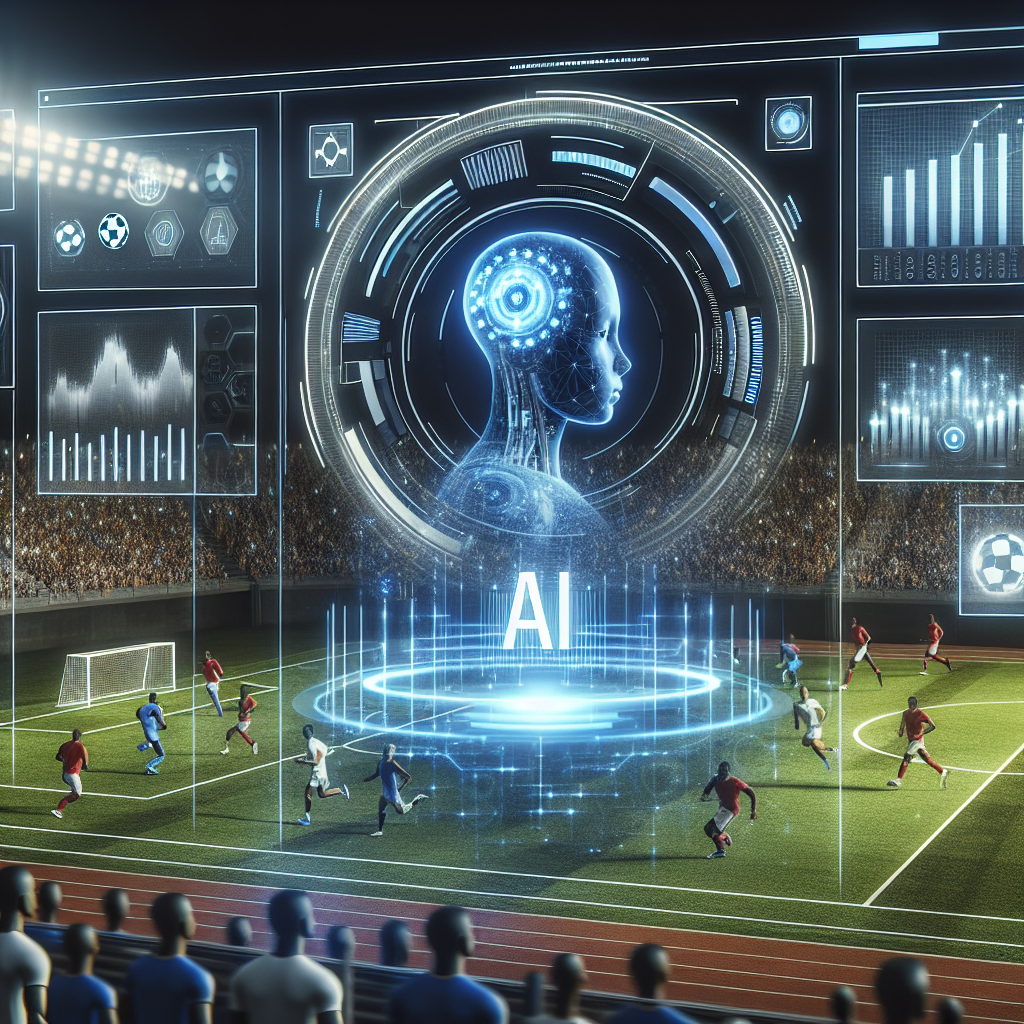The Future of AI in Sports Data Analytics
In recent years, the use of artificial intelligence (AI) in sports data analytics has revolutionized the way athletes and teams approach training, performance analysis, and game strategy. With the ability to process vast amounts of data quickly and accurately, AI has the potential to provide valuable insights that can give athletes and teams a competitive edge. In this article, we will explore the current state of AI in sports data analytics and discuss the potential future applications of this technology.
Current Applications of AI in Sports Data Analytics
AI is already being used in a variety of ways to help athletes and teams improve their performance. One of the most common applications of AI in sports data analytics is in the analysis of player and team performance data. By using machine learning algorithms to analyze statistics from games and practices, coaches and trainers can gain a deeper understanding of their players’ strengths and weaknesses. This information can then be used to tailor training programs and tactics to optimize performance.
Another area where AI is making a big impact is in injury prevention. By analyzing data from wearable devices and sensors, AI algorithms can identify patterns that may indicate an increased risk of injury. Coaches and trainers can use this information to adjust training programs and rest schedules to reduce the likelihood of injuries occurring.
AI is also being used in sports data analytics to improve game strategy. By analyzing data from past games and predicting future outcomes, AI algorithms can help coaches and players make more informed decisions on the field. For example, AI can analyze player positioning and movement patterns to identify areas where a team may be vulnerable to attack, or suggest alternative strategies for breaking down an opponent’s defense.
Future Applications of AI in Sports Data Analytics
While AI is already being used in a variety of ways in sports data analytics, the potential applications of this technology are vast. In the future, we can expect to see even more sophisticated AI algorithms being used to analyze data and provide insights that were previously impossible to obtain.
One area where AI is likely to have a big impact is in talent identification and recruitment. By analyzing data from youth leagues, college sports programs, and other sources, AI algorithms can help scouts and recruiters identify promising athletes who may have been overlooked. This can help teams build stronger rosters and compete more effectively at all levels of competition.
Another area where AI is likely to play a big role in the future is in fan engagement. By analyzing data on fan behavior and preferences, teams and leagues can use AI algorithms to tailor their marketing and promotional efforts to better connect with their audience. This can help increase fan loyalty and drive revenue through ticket sales, merchandise, and other channels.
AI is also likely to play a big role in improving player performance on an individual level. By analyzing data from wearable devices and other sources, AI algorithms can provide personalized training programs and feedback to help athletes optimize their performance and reduce the risk of injury. This can help athletes reach their full potential and extend their careers.
FAQs
Q: How does AI in sports data analytics work?
A: AI in sports data analytics works by using machine learning algorithms to analyze large amounts of data from games, practices, and other sources. These algorithms can identify patterns and trends in the data that may not be immediately apparent to human analysts, allowing coaches and trainers to gain valuable insights into player performance, injury risk, and game strategy.
Q: What are the benefits of using AI in sports data analytics?
A: The benefits of using AI in sports data analytics are numerous. AI algorithms can process data much faster and more accurately than human analysts, allowing coaches and trainers to make more informed decisions in less time. AI can also identify patterns and trends in the data that may not be immediately apparent to human analysts, providing valuable insights that can help athletes and teams improve their performance and reduce the risk of injury.
Q: Will AI replace human analysts in sports data analytics?
A: While AI is likely to play an increasingly important role in sports data analytics, it is unlikely to replace human analysts entirely. Human analysts bring a level of expertise and intuition to the table that AI algorithms cannot replicate, and their insights will continue to be valuable in the future. Instead, AI is likely to work alongside human analysts to provide a more comprehensive and accurate picture of player performance and game strategy.
In conclusion, the future of AI in sports data analytics is bright. With the ability to process vast amounts of data quickly and accurately, AI has the potential to revolutionize the way athletes and teams approach training, performance analysis, and game strategy. By leveraging the power of AI algorithms, coaches and trainers can gain valuable insights that can help athletes reach their full potential and achieve success on the field. As this technology continues to evolve, we can expect to see even more sophisticated applications of AI in sports data analytics that will help shape the future of sports performance and competition.

